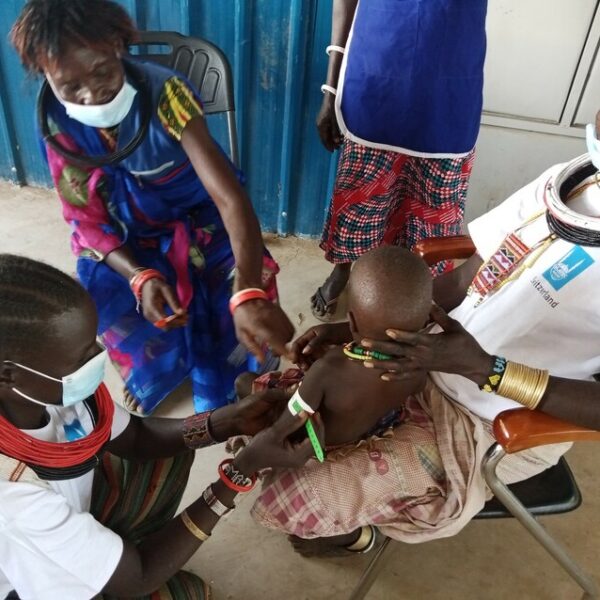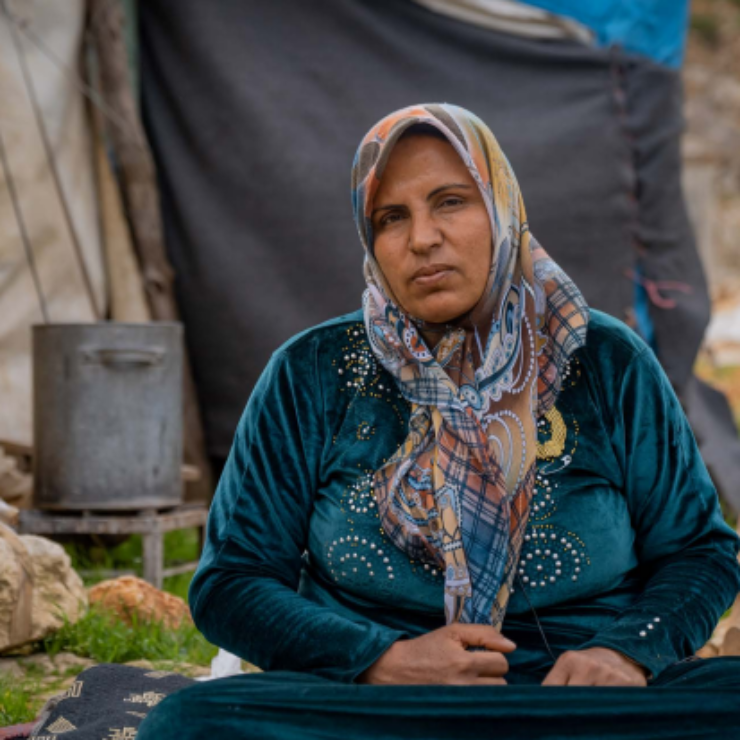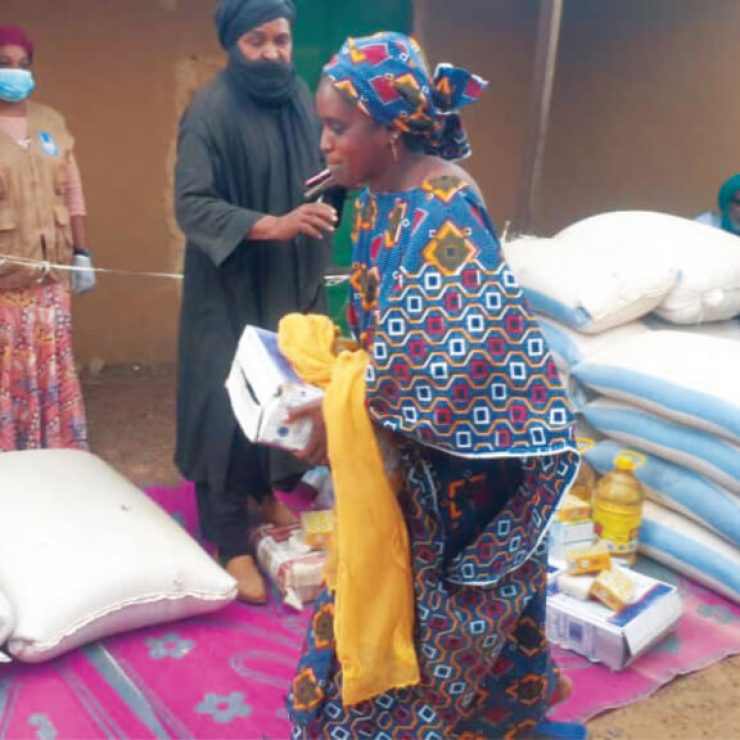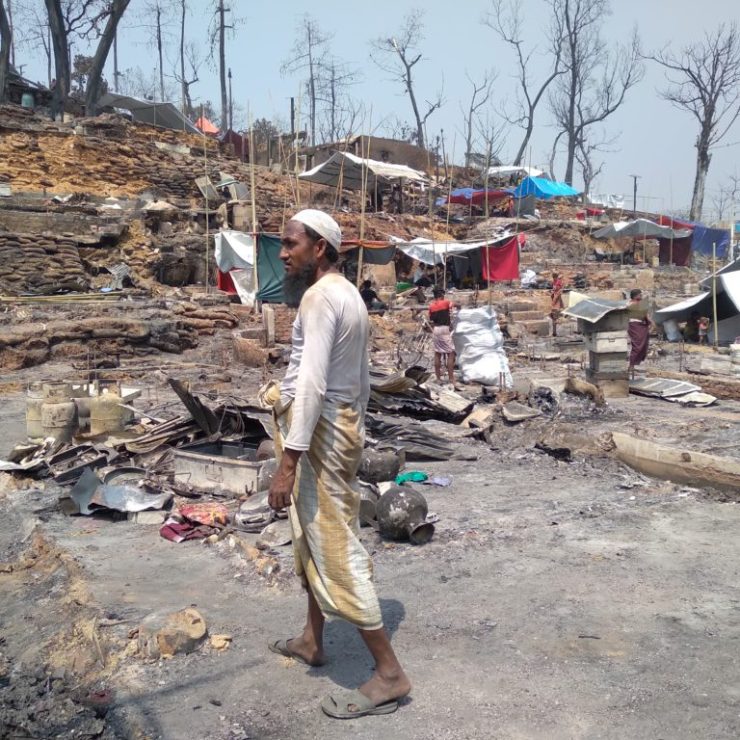September
Since civil war broke out in South Sudan in 2013, hundreds of thousands of people have died and more than 3.5 million people have fled their homes. Despite an official ceasefire, violence between communities continues. Coupled with the Covid-19 pandemic, other disease outbreaks, flooding and a major food crisis, the humanitarian situation is becoming even more desperate.
Islamic Relief responds by providing food packs and essential hygiene items to thousands of people, as well as drilling and repairing boreholes to provide a reliable water supply to communities. We also set in place plans to provide shelter to help those living in unsafe conditions.
![Beirut_help-1024×683 This project was designed as a result of the catastrophic damage caused by the third-largest explosion in the world, which occurred in Beirut, the Lebanese capital on August 4, Islamic Relief Lebanon was able to unite its efforts and attract its sources of funding in order to support directly or indirectly the population in Lebanon affected by the explosion.
The main aim of the project is to address the urgent identified food, hygiene, and health gaps as well as support the initial phases of early recovery (Shelter and WASH) in Beirut. Some recovery responses which must be implemented with no delays alongside life-saving activities in order to prevent a rapid growth in humanitarian needs are included in the project and are fully aligned with Flash Appeal for Beirut's response.
The project will target extremely vulnerable households with one-off food parcels distribution and hygiene kits including personal protective equipment (PPEs). Also, patients, caregivers, and health workers will receive food snacks in the hospitals. Provision of food parcels will support the identified vulnerable families to cover their urgent food needs.
The same families will also receive hygiene kits including PPEs to meet their basic hygiene needs and to reduce the risk of COVID 19 transmission.
The project will be implemented in close collaboration and coordination with Food Security, WASH, shelter, and health sectors. Project implementation modality will make sure no humanitarian staff, beneficiary, or any other individual is exposed to the risk of contracting COVID-19 by sticking to strict standards operational procedures, especially with regard to health risks and hygiene.
Project Goal: Reduced suffering and lives saved for women, men, and girls and boys affected by explosions in Beirut.
Project Objectives: To ensure access to life-saving food, NFI and health support to affected individuals in Beirut
Project Outputs:
Output 1: Immediate food needs of targeted affected population are met
Output 2: Families received essential NFI support, rubble clearance, and hygiene kits to reduce the risk of COVID 19
Output 3: Hospitals and medical centers are supported with medicines, consumables, supplies, equipment and generator fuel
Output 4: Apartments/houses lightly damaged (level 1 and level 2) are repaired (including WASH provision of water tanks and plumbing)
Achieved results per sector:
BA-Food/NFI:
1791 food parcels distributed to 1791 HHs for a total of 6126 beneficiaries (77.16% Leb, 16.75% Syr, 5.52% Pal. 0.5% others).
1548 Hygiene kits distributed to 1548 HHs for total of 5936 beneficiaries (69.12% Leb, 25.71% Syr, 4.58 Pal, 0.58% others).
6388 Liters of fuel for generator were distributed to 3 affected health centers in Beirut and Mount Lebanon
498 food snacks were distributed to the medical staff and the parents of the patients in 2 of the affected hospitals (198 food snacks distributed to children in the CCCL([1]
Health: 10 Health centers (22,850 beneficiaries), affected by the Beirut explosion received health support under three categories:[2]
156 Medical Equipment have been distributed to 5 medical centers
2,193 of chronic and acute medication were distributed to 4 centers
36,478 items of medical supplies and consumables including PPEs and disinfectants were distributed to 8 centers
Shelter:
96 houses were repaired from the minor to medium damage (level 1 and level 2) in close coordination with the shelter cluster, thus 457 beneficiaries (including 2 PWD) were able to return to their houses and live safely (38.54% LEB, 60,41 SYR, 1.04 PAL)
Removing rubble from 2 communities has helped to reopen the public roads and facilitate the movement of the neighborhood’s estimated 2000 residents.
[1] Children Cancer Center of Lebanon
[2] Some centers received support from more than one category, these centers treat patients from all nationalities.](https://annualreport.islamic-relief.org/2021/wp-content/uploads/elementor/thumbs/Beirut_help-1024x683-1-pr1hhn3y19kahkwrt4s78mgdprxk47zs1ute8agkgw.jpg)

DISASTER
Just over a year after a devastating explosion in its capital city, Lebanon’s economic crisis is worse than ever. It is now suffering one of the world’s most severe economic crises of the century.
IMPACT
With the country in economic freefall, the most vulnerable people are on the brink of survival. Skyrocketing prices have pushed even basic food staples beyond reach for many. In the poorest parts of Beirut, homes badly damaged by the blast are still occupied by families u
RESPONSE
One of the first to respond to the explosion, Islamic Relief has remained a lifeline in Beirut throughout the crisis. Our work includes distributing food parcels and repairing and improving shelters for some of the 300,000 people left homeless by the blast. We also assist struggling healthcare facilities by supplying fuel, medicine and medical equipment.


